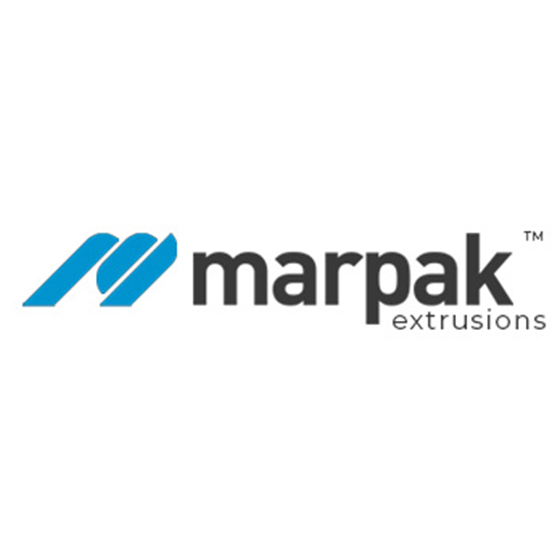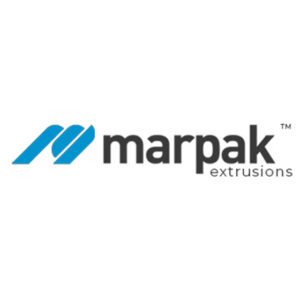Marpak Extrusions recently expanded with a new factory site in Leeds, investing around £2 million in its infrastructure and equipment. Its sister company Talos has also unveiled its Transport Simulator, which allows companies to gain first-hand knowledge of how palletised goods react during transportation prior to putting them on the road, and is used by companies such as Ardagh. Sally Love visited the company and spoke with Commercial Director Jamie Gibson, to discuss the recent investments and the company’s plans for the future.
What does Marpak Extrusions produce?
Marpak produces flexible polyethylene based packaging, specialising in the field of pallet protection, and has over 30 years combined experience in the blown film extrusion and conversion market. We make the shrink-wrapping as well as the palletisers, in conjunction with the Danish company Lachenmeier. Basically we offer cold-end packaging solutions – there are a number of solutions that we’ve provided for the glass container industry, such as bottle diverters.
Can you give me a brief history of the company?
Marpak was started in 1979 by Richard Gibson. He was working for a Swedish company and decided
to start on his own – he was already in packaging so it made sense to continue in that field. He built the business up, moved premises, kept scaling, then moved to Westland Square in 1990. He had four or five extrusion lines and started working with Rockware, who became our biggest customer. One thing led to another, and we progressed within the glass industry. In 1999 or 2000 he sold the company, and we subsequently restarted circa 2003. Initially we started up with a single extruder in Barnsley and started to supply Ardagh again, which built the business up. We then bought a facility in Leeds and started producing there, then moved back into our former premises at Westland Square. We gradually put more lines in and got bigger with the support of a number of blue chip companies such as Ardagh. I joined the business when it restarted. There was only a few of us and we’ve gone from around three of us to over 40 employees now – it’s just grown and grown. We supply the majority of the container glass manufacturers in UK, but we also supply some sites in Sweden, Denmark and the Netherlands. We’re currently in negotiations with other European manufacturers as well. As the business evolved we realised there was a market for second hand shrink-wrap machines so we formed Talos, essentially buying and selling this equipment. From the early days Talos has evolved and we now manufacture our own endof-line packaging solutions as well as various additional solutions.
What industries do you cater to?
It’s mainly the glass industry, plastic containers, the furniture industry and the building industry. The glass industry accounts for a significant proportion of business for both Talos and Marpak.
What drove you to invest recently?
Increased demand from our customers meant we inevitably had to invest in a new facility as we ran out of space at Westland Square. As such we built the new factory and put in a co-extrusion line, which together was about £2million worth of investment, and has created around 10 jobs. So, we now have four sites in total. We needed the co-extrusion line because quite a lot of packaging is now moving towards coex, on which we produce stretch hood film. It’s not applicable to the glass industry, though, it’s mainly used within industries such as building and white goods etc. It secures the pallet without using gas or heat. The new factory is for that and for the wide-width line, which again caters more to the furniture and bedding industry.
Has the glass market grown recently?
It’s grown for us, or it is growing, which is why we’re in talks with manufacturers in Europe. There’s certainly space for it to grow, because our products are probably the best on the market. Between 2011 and 2014 we saved Ardagh UK a significant amount of money by downgauging, which is where you make the film thinner but keep the same strength characteristics. So, you’re not downgauging for the sake of it, you’re improving the blend of your material and then keeping the same strength qualities with a thinner gauge. If you downgauge from 100 micron to 80 micron, which is what we did, you save 20% of the cost of the packaging. If you think about it, in the glass industry there aren’t many areas where you can make those kind of savings, however we managed that at Marpak.
Was that driven by customers asking for it, or from in-house efforts?
It was driven by both Ardagh and ourselves with technical assistance from Total Petrochemicals as well as a number of our other key suppliers, in order to achieve the best blend and to save these costs. It’s good for the companies financially, but there’s also the positive environmental impact attained by using less heat in the packaging process, as well as using less material in the packaging.
Is environmental sustainability important to you as a business?
Downgauging is important in regards to reducing our footprint and that of our customers, but we also have Marpak Green, which is a polymer produced in Brazil from sugar cane as opposed to oil. Using this, we can produce the same film we make for everybody else but using sugar canebased instead of oil-based polymers, and so it’s massively beneficial to the environment.
The only drawback is that it’s expensive, but if you use 51% of this product then you’re carbon neutral so we’re trying to make as many of our customers as possible aware that this is an option; that it’s the way forward.
Where does the Transport Simulator come in to things?
We were approached by one of our customers in the container glass industry who wanted something that would allow them to test the pallets, especially when downgauging and reducing the thickness of the film. When they test the film at their plants they want to be able to see how the pallets react when they’re on the move. You could always put them on a wagon, drive them 100 miles and bring them back, but you still can’t actually see what they’re doing on the pallet – whereas the transport simulator that we’ve designed at Talos allows you to do that. You can see how the pallets are reacting. We’ve sold a number of these transport simulators within the glass industry, as well as to other sectors including the paint and fertilizer industries due to issues they have transporting their products. Obviously, if a load of glass smashes, or paint, it’s an expensive clean up. The impact of a damaged load arriving at a customer is more than just the damaged product; it’s also their confidence in the supplier’s ability to deliver a quality product. It’s about the buyer’s confidence, and the investment in the simulator allows our customers to have confidence that their product will arrive undamaged, and that they will maintain a good working relationship with their customer.
Do you have plan to expand into new regions?
We have agents operating within a number of European countries, and we’re presently looking into the Portuguese and Spanish markets, that’s our primary focus. Outside of Europe, from a Talos point of view we’re in the middle of developing training software and we’ll be looking to sell that globally. We sold a Transport Simulator to India recently, although that wasn’t for the glass industry. The idea is, when you have something like the Transport Simulator in a market such as India then you can look at other markets in that region as you have a point of reference.
Are you nervous about Brexit?
A little bit. I think the uncertainty surrounding when we’re going and how we’re going, membership in the single market; it’s a bit worrying. It depends how people perceive us, when we leave the EU. Obviously from a currency point of view it makes us quite competitive at the moment, but we still have to buy our raw materials from Europe so it’s a double-edged sword. Around 40% of our raw materials come from Europe, so when the exchange rate is low it has made the polymer very expensive.
What are your immediate plans for the future?
At the moment, because we’ve just had all the investment, it’s probably to consolidate in terms of improving Talos’s profile and getting all our staff up to speed and investing in them. There will be a big push for Talos in the next year



